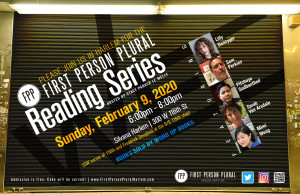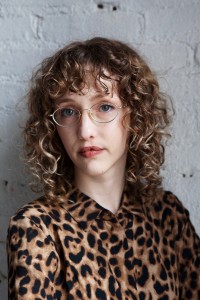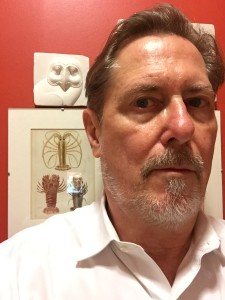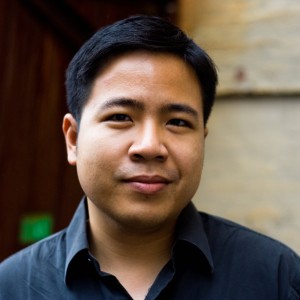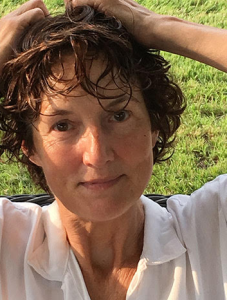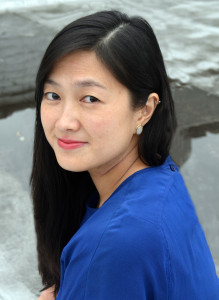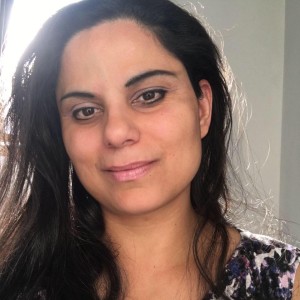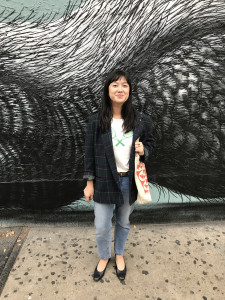 “I believe that art and literature fundamentally become better when we allow for different visions and voices to be seen and heard,” says writer Mimi Wong when considering the power of diversity in publishing. In Wong’s FPP Interview, we hear about how working in various media has impacted her writing, the toll rejection takes, guidance for emerging writers, and much more. Read her words then hear Wong read live with Lilly Dancyger, Sam Perkins, Pitchaya Sudbanthad, and Sarah Van Arsdale this Sunday at Silvana from 6-8pm. Silvana is located at 300 W. 116th St near Frederick Douglass Blvd. Books sold by Word Up! Books. Admission is free. Please RSVP via Eventbrite here. – SPL
“I believe that art and literature fundamentally become better when we allow for different visions and voices to be seen and heard,” says writer Mimi Wong when considering the power of diversity in publishing. In Wong’s FPP Interview, we hear about how working in various media has impacted her writing, the toll rejection takes, guidance for emerging writers, and much more. Read her words then hear Wong read live with Lilly Dancyger, Sam Perkins, Pitchaya Sudbanthad, and Sarah Van Arsdale this Sunday at Silvana from 6-8pm. Silvana is located at 300 W. 116th St near Frederick Douglass Blvd. Books sold by Word Up! Books. Admission is free. Please RSVP via Eventbrite here. – SPL
In addition to writing fiction and nonfiction, you’re a video producer and editor in film, television, and web work. Tell us about this multi-media work, and what working in various media has meant for your art.
Working in film and TV definitely tapped into my interest in storytelling. But instead of using text, I’m pairing visual imagery with audio. My experience with documentaries taught me how to juggle a lot of information in my head at once and learn how to problem-solve quickly. I wonder if those skills come from the same place in my brain that also enjoys writing long-form fiction. Across all media, I find that having compelling characters is my entry point into any story.
As editor in chief of The Offing, you helm an online literary magazine that “seeks out and supports work by and about those often marginalized in literary spaces.” How is this focus meaningful to you and to the publishing landscape? What guidance would you offer other editors based on your experience?
What I really love about the work I do at The Offing—which is entirely volunteer-based, by the way—is that I believe it goes hand-in-hand with my own desire to tell stories that are currently missing from the mainstream. The dream is a more inclusive literary landscape for everybody, and that’s why it feels necessary to use whatever small amount of privilege I have to help uplift other writers. The commitment to inclusive representation in The Offing’s content is also reflected on our masthead. At the same time, we recognize that as editors we each have our blind spots. So it becomes even more vital to have a diverse pool of readers, and to be able to collaborate with colleagues who have different lived experiences from our own. But it’s not about diversity for diversity’s sake. I believe that art and literature fundamentally become better when we allow for different visions and voices to be seen and heard.
It’s 2020. What gives you hope? What gives you pause?
I won’t lie—I’ve been struggling to find my joy again. At the end of the year, and into the new year, I felt really beaten down as a writer. Dealing with constant rejection from an industry that seems reluctant to change has been tough. It’s at those low points that I’ve come to appreciate being part of a community. As a writer who didn’t go through an MFA program, I didn’t have that for a long time. So I’m truly grateful to how welcoming other editors and writers have been. I’m finding hope in being able to make new connections and friendships.
What advice would you give emerging writers today?
When I was in my 20s, I put a lot of pressure on myself, and it made me impatient with my writing. My advice to other writers is that it’s okay to take your time. Don’t feel like you have to rush the process, whether that’s with your writing or finding an agent or trying to get published. Also don’t be afraid to re-apply or re-submit to places after you’ve been rejected. In a funny way, finally getting something after multiple failed attempts has actually helped alleviate that sense of imposter syndrome for me because I know how hard I worked to earn my spot.

